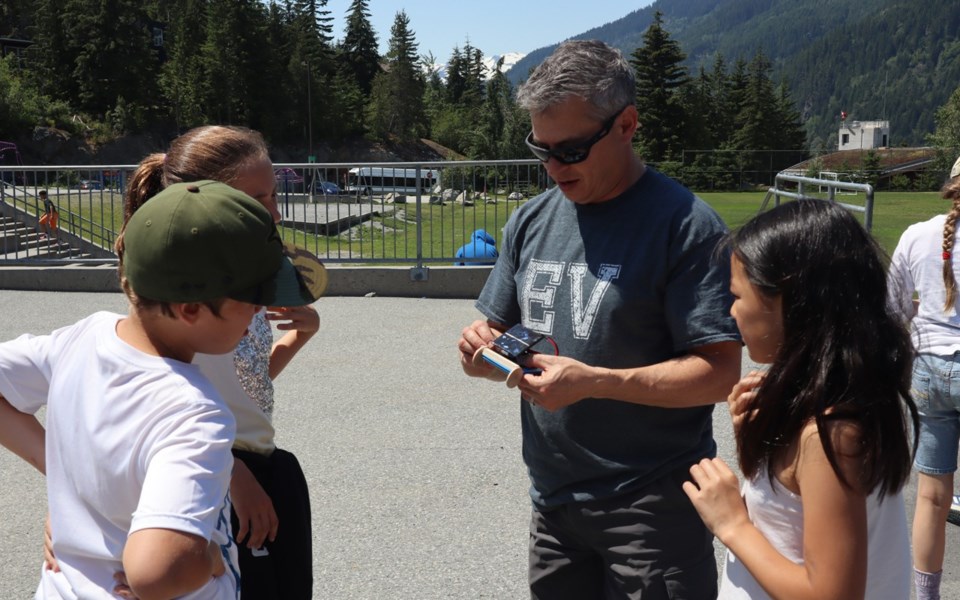With electric vehicles (EVs) becoming an increasingly more common presence on our roads, a group of Spring Creek Community School students are getting ahead of the curve.
On Tuesday afternoon, June 19, two Grade 5 and 6 classes gathered behind their school to put a fleet of solar-powered miniature EVs they'd built to the ultimate test under the hot afternoon sun.
The race was the culmination of a months-long initiative that aimed to teach five classes from the elementary school about EVs and renewable energy.
"What we found, is because EVs are so topical right now, kids can't help but notice Elon Musk sending an EV to space in a rocket ship, and on and on it goes," explained Paul Shore, a local tech consultant, electrical engineer and Spring Creek parent who headed the program.
"Even if they're quite young, they have kind of a base level of awareness that (EVs) have a 'cool factor.'
"Once you talk about EVs and electricity, that sets up nicely—it's almost a gateway—to (talk about) where our electricity comes from ... and now they're interested. It's been a real hit."
The program included two teaching modules Shore presented—one focused on EVs and another on renewable energy. Some classes also hosted a third session, with Shore helping them to build the small solar-powered models, constructed from kits produced on Salt Spring Island. Shore worked with teachers to develop the material and worked it into the curriculum at an appropriate time.
The project was a collaboration between Shore and the Whistler Centre for Sustainability, and partially enabled by a grant from the Community Foundation of Whistler. The grant "allowed (the program) to go a bit more broadly than I would have been able to do on a volunteer basis," Shore explained.
Soren Weetman, a Grade 6 student, said he didn't know too much about EVs before the program began. "I was interested in them. I just knew they had an electric engine and were kind of more efficient for the environment, but that's all I knew," he said.
Since the project started, Weetman said he's enjoyed learning about EVs' regenerative braking—"Which means they brake with energy coming back into them," he explained—and about the various different kinds of batteries that can be used to power EVs.
"Electric cars have a future, so I want to go a bit more electric and I kind of think they're really cool, so I want to maybe get one when I'm older," he said.
In addition to building the solar-powered models, the students in Jeannette Kwiatkowski and Jane Millen's classes also transferred their new-found EV knowledge into another project. The students followed along the hosts of French-language educational television show Oniva! as they travelled across Canada, charting out a road trip with their assigned virtual electric vehicles. As part of the assignment, they had to find charging stations and manage a mock budget, too.
"It's so brilliant," said Shore. "(The teachers) have obviously tied in science, with the EVs, but also geography, math (and) social studies in that they need to apply critical thinking.
"It's really neat to see how it's blossomed in only a few months."




